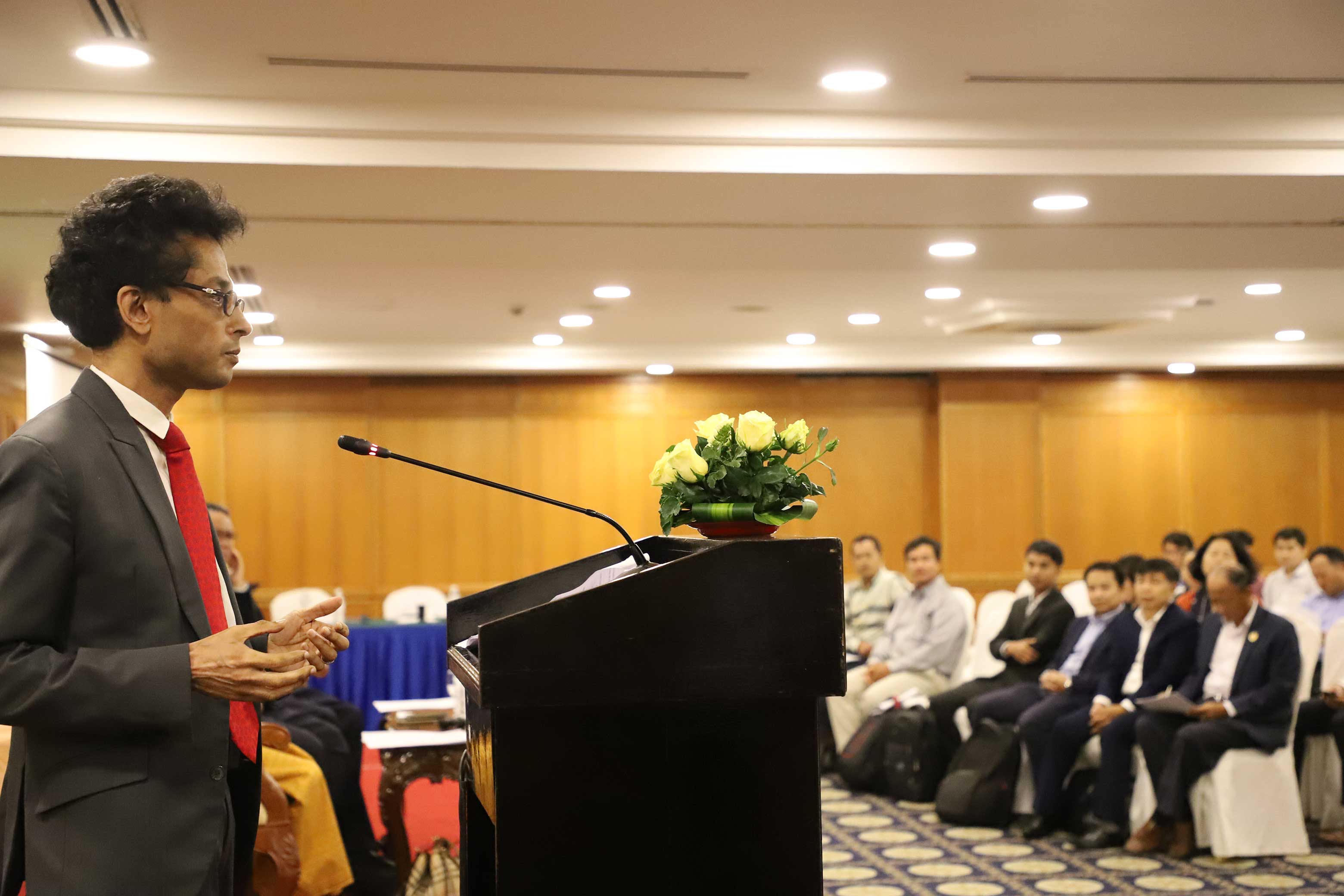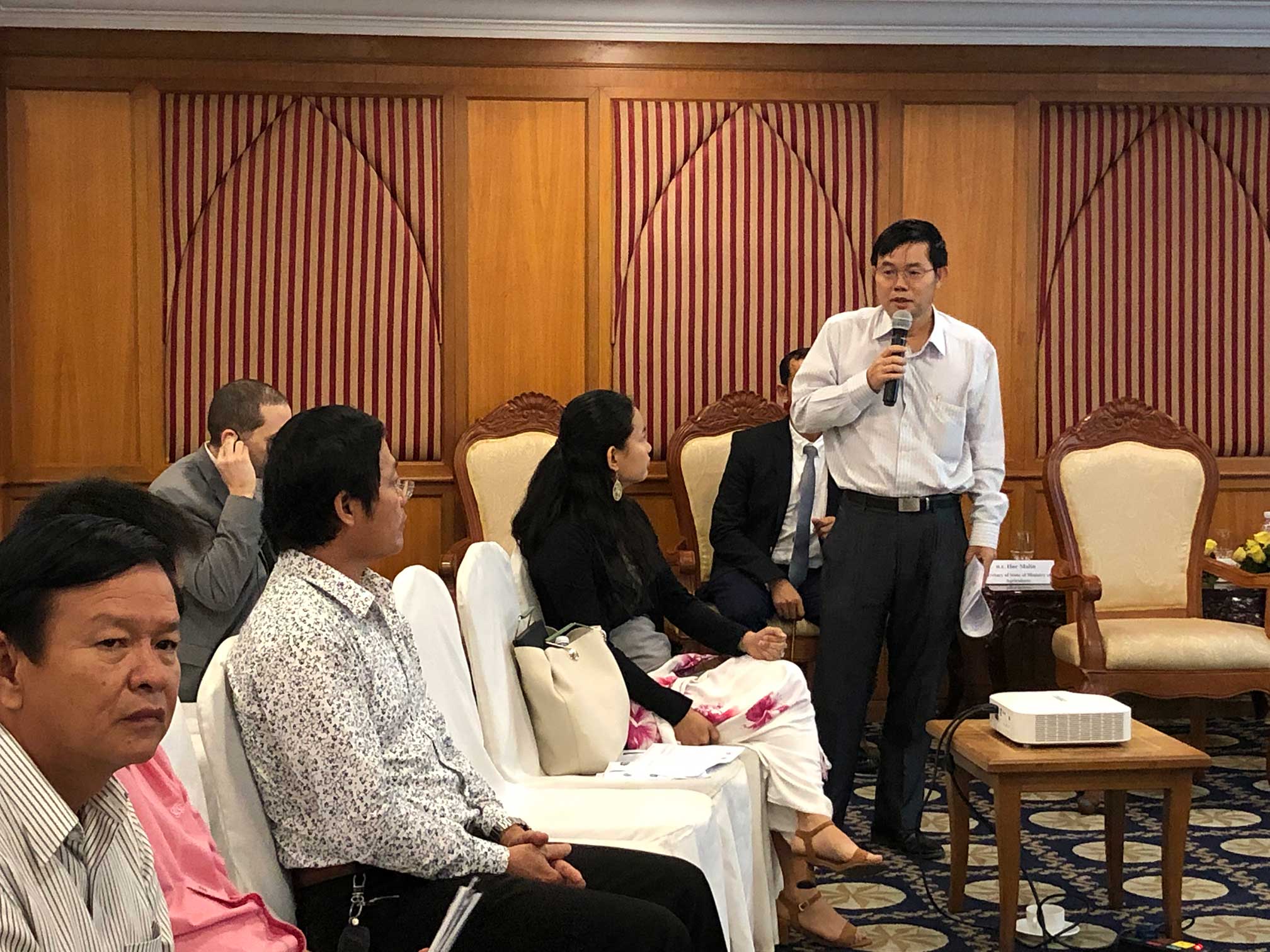Seven key strategic areas that will guide different sectors and stakeholders on collaborative interventions against antimicrobial resistance (AMR) in Cambodia have been endorsed and made public in a multi-sectoral action plan launched today at Sunway Hotel, Phnom Penh.
The Ministry of Health (MoH), Ministry of Agriculture, Forestry and Fisheries (MAFF) and Ministry of Environment (MoE) who led the development of the action plan say the “first multi-sectoral” blueprint 2019-2023 will provide a more robust approach and involve and benefit a range of sectors, including human and veterinary medicine, agriculture, food, financing, and environment, as well as consumers.
A broad range of actors, from policy and decision-makers to researchers, students and the media, to professional societies and technical experts to community leaders and international partners, can use the guide to design programmes and activities aimed at combating AMR.
“As Ministries of the Royal Government of Cambodia, we pledge to adopt a collaborative, coherent, comprehensive and integrated approach to preventing and containing AMR resulting from inappropriate use of antimicrobials in human health, food and agriculture,” reads the ministerial statement on the plan.

“We urge all stakeholders to support the implementation of the multi-sectoral action plan. Sustainable action against AMR shall contribute towards Cambodia’s socio-economic development,” added the statement.
New plan acknowledges progress but calls for better action to curb AMR
Cambodia’s 2017 situation analysis, conducted by a technical working group from the three ministries and with support from the World Health Organization (WHO), Food and Agriculture Organization (FAO) and World Organization for Animal Health (OIE), has informed the development of the action plan.
It acknowledges the country’s great strides in combatting AMR over the past few years but calls for multi-sectoral efforts, such as on infection and prevention control and surveillance and high rates of AMR in isolates of Escherichia coli, Salmonella, and Staphylococcus aureus, which become resistant to antibiotics, including penicillins, gentamicin, fluoroquinolones and methicillin.
One of the pillars of the joint plan recommends establishing a unifying framework and governance mechanisms for the ministries and other stakeholders to collaborate. The plan also outlines knowledge and data gaps and other human and institutional challenges, while providing strategic directions for stakeholders as they identify priority areas for collaboration and mobilize resources to ensure coordinated efforts.
“By supporting Cambodia in establishing more robust governance systems, knowledge and capacities required to address the country’s evolving health needs and AMR challenges, we can help them to be better prepared for the future,” said Dr Kumanan Rasanathan, Health Systems Coordinator at the Office of the WHO Representative in Cambodia.

“By using different expertise under the tripartite initiative by WHO, FAO and OIE, we can assist the country, for example, with generating improved evidence to help different stakeholders understand that they have shared responsibility to curb inappropriate use of antimicrobials and AMR. This marks an important step towards more coordinated efforts on AMR,” added Dr Rasanathan.
AMR has become a global threat, and the global AMR community is urging all countries to step up efforts in the fight against AMR. This means that Cambodia will join other countries in strengthening nationally relevant capacities that are aligned with national development interests, population health needs and the global action plan on AMR.
Any absence of effective actions to combat AMR will, however, have significant repercussions for the world’s population and economy, according to recent reports by the World Bank and Food and Agriculture Organization (FAO).
Low-income countries, according to a 2017 World Bank report on drug-resistant infections and FAO action plan on AMR 2016-2020, risk losing more than 5 percent of their GDP. AMR could push up to 28 million people into poverty due to difficulty in treating infections and losses in agriculture. It could increase global health care costs by USD 300 billion to more than USD 1 trillion per year but decrease global GDP by 2 to 3.5 percent or approximately USD 100 trillion by 2050.
